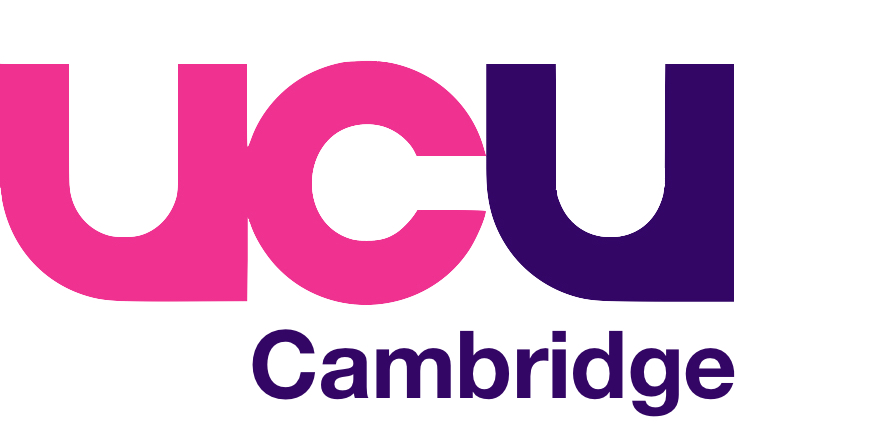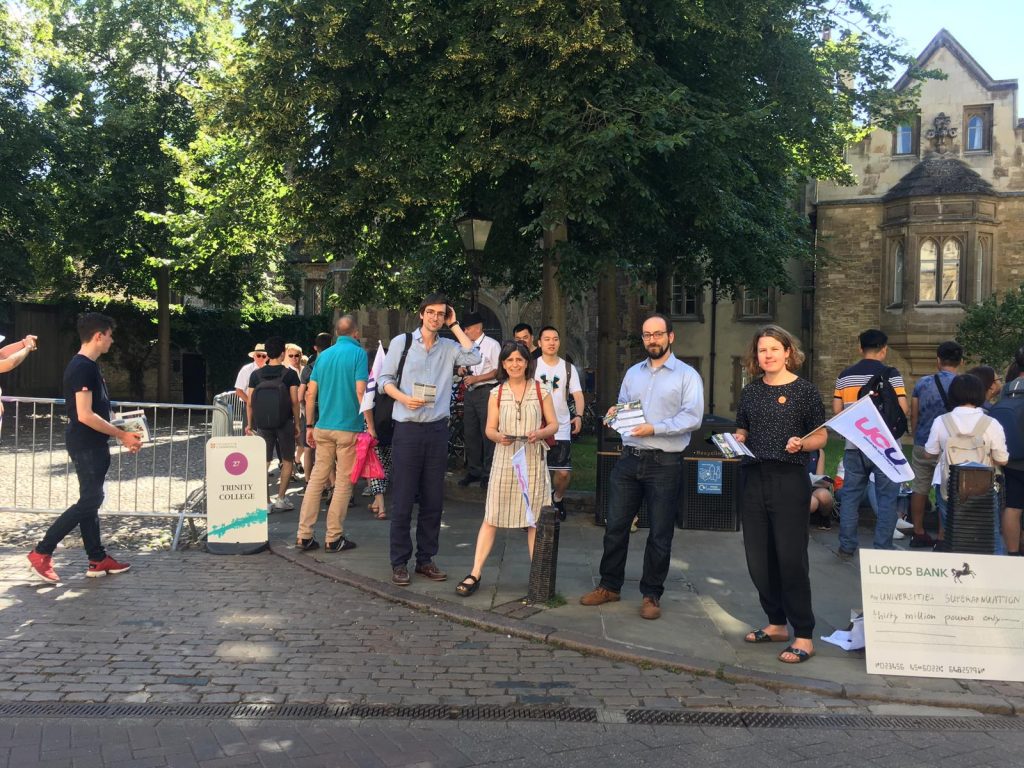The decision. Trinity College Council has decided to pay £30m to buy out of the USS pension scheme used by much of the UK HE sector. A Special College Meeting held on 21 June 2019 to consider the Council’s decision did not attain the two-thirds majority required to overturn it—though 43 fellows voted in favour of alternative courses of action, and three have already resigned as a result of the Council’s decision [Timeline].
The justification and its weakness. The decision is said by Trinity to be in the best interests of the College, because it averts a ‘remote’ but ‘existential’ risk that the College’s endowment would be seized to pay the pensions of staff elsewhere. The Council’s reasoning on this risk is unpersuasive. Trinity emphasizes that the decision was based on legal and actuarial advice, but has not made clear what questions or assumptions shaped that advice—or how the Council weighed remote financial risk against the wholly foreseeable reputational and educational damage the College now faces.
As Trinity acknowledges, and has been reiterated by multiple authorities (USS, the Joint Expert Panel, and actuarial advisers of all key stakeholders), USS is in a sound financial position, and is far from needing to call on employers to pay pensions as they become due. However, Trinity’s decision injects uncertainty into ongoing valuation processes.
Trinity has consistently claimed that Trinity’s buyout alone does not jeopardise the scheme. What Trinity does not mention is that, if a second wealthy employer follows Trinity’s lead, PwC has warned that the combined withdrawals could prompt a downgrading of the employer ‘covenant’ (that is, the employers’ collective legal obligation and financial ability to support the scheme). This would have severe impacts on contributions and benefits for 400,000 scheme members. Trinity points to its extensive funding of other Cambridge colleges to allay criticism of its actions, but such funding does nothing to address the possible wider impact of the buyout (for further responses to Trinity’s justifications, see [Justifications] below).
Reactions to the buyout. The buyout has been condemned by some of Trinity’s own students; and by the academic community in Cambridge and beyond, as a repudiation of the mutuality and solidarity which hold HE together. Over 500 Cambridge staff and graduates are boycotting the College (some of them explain their decisions here). UCU has initiated a nationwide censure and boycott process (for more, see [Reactions to Trinity’s buyout]. This damage to the College’s educational mission and reputation, coupled with the questionable assessment of the risk posed by the scheme, raise questions about whether the buyout was in fact in Trinity’s best interests.
Where we go from here. Trinity claims the decision is now irrevocable, but there is some doubt about the steps actually taken to date. On the basis of informal legal advice—the best guidance available to us given the lack of clarity about Trinity’s actions—we believe it can yet be reversed.
PLEASE JOIN COLLEAGUES AND THE WIDER ACADEMIC COMMUNITY IN CALLING ON TRINITY TO CHANGE COURSE.
|
TRINITY ALUMNI Sign and share the open letter calling on Trinity to reverse course. |
CAMBRIDGE STAFF AND GRADUATE STUDENTS Sign and share the boycott letter. Refuse to engage in discretionary work for Trinity. Tell the Senior Tutor, |
STAFF IN UK HE Sign and share the national petition. |
Timeline of events within Trinity
- 24 May 2019, the Council of Trinity College, Cambridge, voted 8-5 to withdraw from the USS scheme, effective 1 June 2019. This followed a three-day non-binding consultation of the fellowship (including retired fellows, who would not be affected by any changes). The consultation showed equal support for remaining and leaving the scheme; the Council acknowledged that it did not have a mandate from the fellowship, but took the view that as charitable trustees they could nonetheless go ahead with the decision.
- The Council decision was acted upon immediately, which did not afford the fellowship time in which to challenge it (customarily, Council decisions are approved with a week’s delay); meanwhile, 44 fellows wrote to express grave concern at the decision.
- 29 fellows (more than twice the number statutorily required) called for a Special College Meeting (SCM) to challenge the Council decision. As the Council decision had already been acted upon, two motions were put forward: (1) requesting more information about alternative options to withdrawal, such as insurance; and (2) calling for withdrawal to be reconsidered.
- The SCM was held on 21st June. The first motion lost 43-76 (2 abstentions), and the second lost 43-73 (5 abstentions). Fellows present report that the call for more information was voted down despite no arguments being presented against it.
- Trinity has presented its decision as a means of averting the remote risk that, under the ‘last employer standing’ principle on which the USS scheme operates, the scheme might — were almost all other employers in the USS scheme to fail — call on Trinity’s endowment to fund pension obligations of other employers. This risk is extremely remote: see here for the string of extremely implausible events, running counter to the design of the scheme and the way the pensions sector operates, which would be required for this risk to eventuate.
- Trinity has emphasised that it derives more of its income (75%) from its endowment than most HE employers, and that its operations are thus particularly vulnerable to any threat to the endowment. However, its income from other sources (primarily fees) is of course commensurate with that of other Cambridge colleges; and (as discussed above) the actual threat to the endowment posed by the USS scheme is extremely remote.
- Trinity officeholders have emphasized that as Council members they were acting as trustees, and required to make a decision in the best interests of the College. This is of course true. The fact remains, though, that others outside Trinity are naturally looking at the matter from a wider perspective. The question of what was in the best interests of the College needed to factor in this foreseeable reaction of others, and its impact on the College.
- Trinity has stressed that it redistributes roughly £8m a year (roughly 25% of its endowment income) to other colleges and educational purposes in Cambridge (about half of this dictated by University rules, the rest discretionary); and even mentioned that protecting its endowment might allow Trinity to support or even re-found other colleges should there be a crisis in the sector. But the ongoing funding of other colleges and purposes, while important and appreciated, does not mitigate the possible impact of the Trinity buyout. And the argument that Trinity is acting altruistically to preserve resources for the benefit of other Cambridge colleges is, in leaked documents advocating the decision, most developed under the heading ‘Public Relations aspects’. If Trinity based its decision to any extent on the view that ‘the Collegiate University would benefit from having a major College safe from any future tribulations within USS’ (p. 7), it should explain whether it in fact consulted the University and other colleges on the matter.
In Cambridge
- Over 500 staff have signed an open letter undertaking to “refuse to supervise Trinity students or to engage in other discretionary work in support of Trinity’s teaching and research activities” (see here for staff explaining their decision to boycott). At least one external Director of Studies has also resigned. The boycott is expected to severely impact teaching in History, English, some languages, and HSPS (Human, Social, and Political Sciences). Trinity is appointing fixed-term College Teaching Officers to cover teaching needs, though this does not address supervision for specialist finalist papers. As they have explained, staff deeply regret the impact on students, and they take the step of boycotting because there is no other avenue for expressing their principled objections to Trinity’s decision.
- The Cambridge Graduate Union has expressed unanimous support for the boycott.
Nationally and internationally
- UCU has now initiated its censure and academic boycott procedure. Trinity was censured on 21 June, following the failed Special College Meeting. The censure will be publicised internationally. UCU is now discussing a national boycott, which would entail advising members to avoid all academic contact with Trinity, including applying for jobs, speaking at conferences, and accepting visiting positions.
- Staff based at other universities have already initiated a petition calling on Trinity to reverse its decision, and pledging to abide by any UCU boycott.
Press coverage
Guardian: June 20
Pensions Expert: May 28
Extensive coverage in Varsity, including Dec 8, May 19, May 22, May 24, May 30, June 5, June 19, July 1

